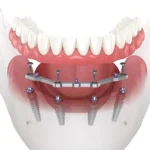
Cancer Tests: Ensuring Accurate Diagnoses For Better Health
Understanding Cancer Tests
Cancer is a complex disease impacting millions globally, and early, accurate diagnosis is critical to effective treatment and better outcomes. Cancer tests are crucial in identifying cancer, determining its type and stage, and guiding treatment choices. With rapid advancements in diagnostic technology, understanding the variety of available tests—from traditional imaging to genetic analyses—is essential for informed care decisions. The significance of accurate diagnoses, various cancer tests, and the factors affecting their reliability provide a clearer view of how these tests contribute to better health outcomes.
Importance Of Accurate Cancer Diagnoses
Accurate and timely cancer diagnoses are vital for ensuring effective treatment and improving patient outcomes. Early detection, combined with a precise understanding of cancer characteristics, allows healthcare providers to design personalized treatment plans that significantly enhance the chances of success. In contrast, delayed or incorrect diagnoses can result in treatment postponements, unnecessary procedures, and poorer prognoses. Misdiagnoses also impose emotional and financial burdens on patients and their families. At RGCC – North America, healthcare professionals utilize advanced diagnostic technologies and prioritize patient collaboration to ensure early detection and appropriate treatment, ultimately improving outcomes and enhancing quality of life.
Common Types Of Cancer Tests
Cancer tests come in a wide variety of forms, each with its unique capabilities and applications. Understanding the different types of tests available is crucial for patients and healthcare providers to make informed decisions about their care. This section will explore the most common cancer tests, including screening tests, diagnostic tests, biopsy procedures, imaging tests, and genetic tests.
Screening Tests For Early Detection
Screening tests are crucial in detecting cancer early, often before symptoms appear, improving treatment outcomes. Standard screenings include mammograms for breast cancer, colonoscopies for colorectal cancer, and Pap smears for cervical cancer. While these tests can be highly effective, they are not perfect. False-positive results may cause unnecessary anxiety and lead to additional testing, while false negatives can delay diagnosis and worsen outcomes. Therefore, healthcare providers must carefully consider the pros and cons of screening tests to ensure the best recommendations for their patients.
Diagnostic Tests For Confirming Cancer
Once a potential cancer case is identified through screening, diagnostic tests are used to confirm the presence of the disease and provide critical details about its characteristics. These tests can range from laboratory blood, urine, or other bodily analyses to more invasive procedures like biopsies. For example, a biopsy can reveal the cancer’s type and whether it has spread, helping shape treatment decisions. Accuracy in these tests is crucial, as the results determine the treatment plan and prognosis. Healthcare providers must choose and interpret the proper tests within the patient’s health context.
Biopsy Procedures For Analyzing Cancer Cells
Biopsies are crucial to cancer diagnosis, providing cell samples for analysis. Fine-needle aspiration (FNA) uses a thin needle to extract cells, often for thyroid or lymph node evaluation. Using a larger needle, core needle biopsies gather more tissue for detailed analysis. Surgical biopsies are sometimes needed to access hard-to-reach areas or obtain larger samples. Each method is chosen based on the situation, ensuring accurate results that guide effective treatment plans.
Imaging Tests For Visualizing Tumors
Imaging tests are crucial for diagnosing cancer and visualizing tumors’ location, size, and characteristics. At Tellica Imaging (https://tellicaimaging.com/), advanced imaging technologies such as X-rays, CT scans, MRIs, and PET scans enhance diagnostic accuracy. X-rays are often used for quick detection of abnormalities, such as lung cancer, while CT scans offer detailed, 3D images that are vital for cancer staging. MRIs provide high-resolution images of soft tissues, and PET scans detect cancer cells’ metabolic activity, offering insights into the disease’s stage and aggressiveness. By combining these modalities, healthcare providers can comprehensively understand the patient’s condition and create personalized treatment plans for optimal care.
Genetic Testing For Assessing Cancer Risk
Genetic testing is a powerful tool in cancer care. It offers insights into an individual’s genetic predisposition to cancer by detecting mutations like BRCA1 and BRCA2, which increase the risk of breast and ovarian cancers. Positive results can prompt more frequent screenings or preventive measures, like surgery. Additionally, genetic testing informs treatment by identifying markers that guide personalized therapies, a practice known as precision medicine.
While valuable, genetic testing has emotional and social implications, making it essential for healthcare providers to offer clear guidance and counseling to support patients.
Factors Affecting The Accuracy Of Cancer Tests
The accuracy of cancer tests is crucial, as results directly impact treatment and prognosis. However, no test is 100% accurate, and several factors can influence reliability.
Early-stage cancers may be more challenging to detect, leading to false negatives due to low quantities of cancer cells or difficult-to-access locations. The type of cancer also matters; certain cancers, like prostate cancer, can be challenging to identify accurately. Additionally, patient factors such as age, overall health, and medications can affect test interpretation.
Healthcare providers may use multiple tests, repeat testing, and ongoing monitoring to improve accuracy, ensure reliable detection, and improve outcomes.
Conclusion: The Role Of Cancer Tests In Improving Health Outcomes
Cancer tests are crucial in diagnosing and treating cancer, providing the detailed insights necessary for personalized care. With advancements in diagnostic technologies, healthcare providers can better understand cancer’s genetic and physical traits, enabling more effective treatment plans.
However, challenges remain in ensuring test accuracy. Factors like the cancer’s stage, type, and the patient’s health can impact results. It’s vital for healthcare providers to carefully choose and interpret these tests, tailoring strategies to each patient.
Ultimately, accurate cancer tests are essential to better outcomes, improving treatment, reducing complications, and enhancing patients’ quality of life. A collaborative approach between patients and healthcare teams is critical in this ongoing fight, helping to transform cancer care with hope and confidence.

















